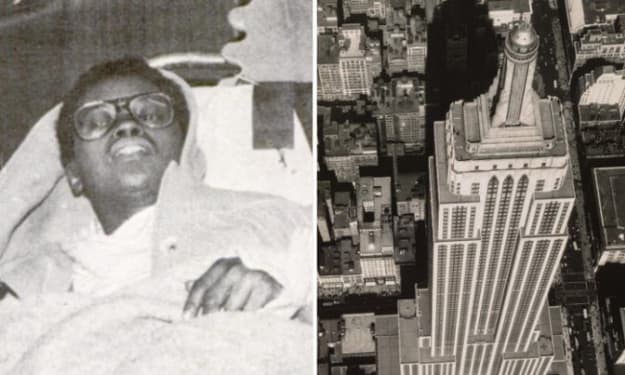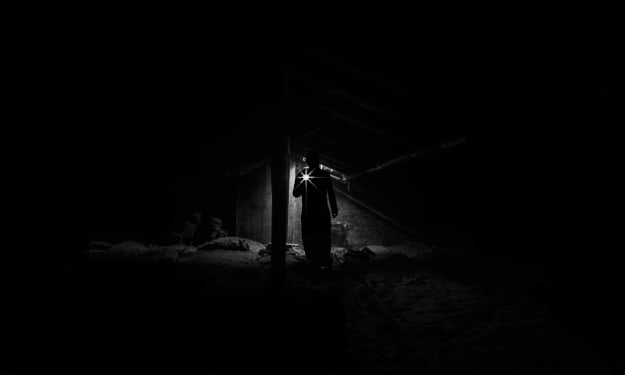The Horrors of Extremism: A Tragic Execution in Mosul
Gruesome execution

In 2015, the world was once again reminded of the brutalities inflicted by ISIS when a man in Mosul, Iraq, was publicly executed by being thrown from a tall building. His crime, as alleged by the extremist group, was homosexuality. This tragic event not only highlighted the ruthless measures ISIS employed to enforce their strict interpretation of Islamic law but also brought into stark relief the group's campaign against what they termed "sexual deviance."
The Rise of ISIS and the Reign of Terror
The Islamic State of Iraq and Syria (ISIS) emerged from the chaos of the Syrian Civil War and the instability in Iraq following the U.S. invasion. By 2014, the group had captured significant territories in both countries, declaring a caliphate with its capital in Raqqa, Syria. Their rule was marked by extreme violence, oppressive governance, and a draconian interpretation of Sharia law.
ISIS’s approach to governance was rooted in fear and terror. Public executions, amputations, and floggings became routine as the group sought to maintain control and impose their version of Islamic law on the populations under their dominion. Among the many groups targeted by ISIS were individuals accused of homosexuality, who faced particularly gruesome punishments.
The Execution in Mosul
The tragic incident in Mosul in 2015 is one of many documented cases where ISIS brutally punished those accused of homosexuality. In this instance, the man was thrown from the top of a tall building, a method of execution that ISIS employed to instill fear and enforce their moral code. Crowds were often forced to gather and witness these executions, reinforcing the group's power through spectacle and terror.
The execution was carried out publicly, a tactic designed to both punish the individual and serve as a stark warning to others. For ISIS, public executions were a tool of psychological warfare, intended to demonstrate their absolute authority and the severe consequences of defying their laws.
The Broader Campaign Against Homosexuality
Under ISIS rule, homosexuality was deemed a grave sin, punishable by death. This stance was part of a broader campaign against what the group considered moral corruption and sexual deviance. Reports from territories controlled by ISIS detailed numerous executions of individuals accused of being gay. These executions were often carried out with a horrifying level of cruelty, designed to maximize suffering and public visibility.
ISIS’s persecution of LGBTQ+ individuals extended beyond executions. Those suspected of homosexuality were often subjected to torture, blackmail, and imprisonment. The mere accusation of being gay could lead to death, and the lack of any due process meant that many innocent people were caught up in these purges.
The Impact on the LGBTQ+ Community
The reign of ISIS had a devastating impact on the LGBTQ+ community in Iraq and Syria. Fear and paranoia permeated daily life for those living under ISIS control. Many LGBTQ+ individuals went into hiding, cut off ties with friends and family, or fled the region altogether in an attempt to escape persecution.
The international community, while condemning ISIS’s actions, faced significant challenges in providing support and refuge to those at risk. The brutality faced by LGBTQ+ individuals under ISIS rule highlighted the broader issue of LGBTQ+ rights in the Middle East, where social and legal norms often marginalize these communities even outside of conflict zones.
The Global Response
The global response to ISIS's human rights abuses, including their treatment of LGBTQ+ individuals, was one of outrage and condemnation. Human rights organizations documented and reported these atrocities, bringing international attention to the plight of those living under ISIS control. The United Nations, along with various governments and NGOs, worked to provide aid and support to refugees fleeing ISIS territories.
Military efforts by international coalitions eventually led to the dismantling of ISIS’s territorial control by 2019. However, the trauma and scars left by the group’s reign of terror continue to affect those who lived through it. For the LGBTQ+ community, the period under ISIS was one of the darkest chapters in recent history, a time marked by extreme violence and profound loss.
Remembering the Victims
As we reflect on the tragic events in Mosul and other areas under ISIS control, it is crucial to remember the victims of these atrocities. The man thrown from the building in Mosul represents countless others who suffered under ISIS’s brutal regime. Their stories must not be forgotten, as they serve as a powerful reminder of the dangers of extremism and the importance of defending human rights.
Moving Forward
In the aftermath of ISIS’s defeat, efforts to rebuild and support affected communities are ongoing. Advocacy for LGBTQ+ rights in the region remains a critical issue, as social and legal challenges persist even without the presence of ISIS. International support and solidarity are essential in helping these communities recover and in promoting a future where such atrocities are not repeated.
The tragic execution in Mosul is a stark example of the depths of human cruelty that can be reached under extremist ideologies. It underscores the necessity of vigilance in protecting human rights and the importance of fostering societies that embrace diversity and equality. By remembering the past and advocating for justice, we can honor the victims and work towards a more inclusive and humane world.
About the Creator
Enjoyed the story? Support the Creator.
Subscribe for free to receive all their stories in your feed. You could also pledge your support or give them a one-off tip, letting them know you appreciate their work.






Comments
There are no comments for this story
Be the first to respond and start the conversation.